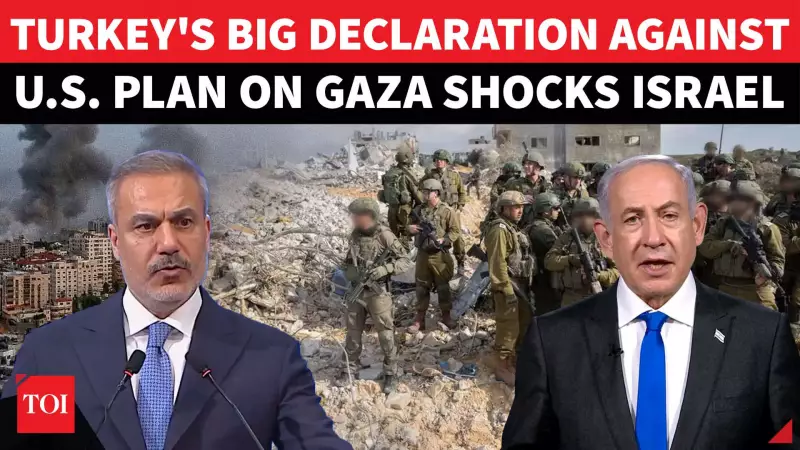
Turkey has intensified its call for a clearly defined mandate for the proposed international stabilisation force in Gaza, even as Israel firmly opposes any Turkish military participation in the peacekeeping mission.
Ankara's Stance on Gaza Force Mandate
During a joint press conference held in Ankara on November 13, 2025, Turkish Foreign Minister Hakan Fidan emphasized that the mandate of the proposed international stabilisation force for Gaza must be clearly defined. Fidan stressed that establishing a proper legal and political framework for Gaza's post-war governance remains crucial for long-term stability in the region.
The Turkish diplomat referenced the expected leadership transition to the Palestinian Committee and Peace Council, indicating that these bodies are poised to take charge of Gaza's administration once hostilities cease. His comments came during discussions with Egyptian counterpart Badr Abdelatty, who confirmed that United Nations negotiations continue regarding the US draft resolution that outlines the comprehensive peace plan.
Israel's Opposition to Turkish Involvement
Despite Turkey's offer to contribute troops to the stabilisation force, Israel has explicitly rejected Ankara's participation. Israeli officials argue that only neutral countries should be involved in the peacekeeping mission, expressing concerns about Turkey's historical ties and political stance regarding the Palestinian cause.
This development highlights the ongoing diplomatic tensions between Turkey and Israel, even as both nations navigate the complex post-war planning for Gaza. The Israeli position reflects broader concerns about ensuring impartiality in the stabilisation force's operations and decision-making processes.
Ongoing Diplomatic Efforts
Egypt's Foreign Minister Badr Abdelatty confirmed that negotiations at the United Nations are progressing, though specific details about the timeline for resolution adoption remain unclear. The US-drafted resolution aims to provide a comprehensive framework for Gaza's stabilisation and eventual transition to Palestinian governance.
The proposed international force represents a critical component of post-conflict planning, intended to maintain security and facilitate humanitarian operations while Palestinian governing structures are established. However, the disagreement over Turkey's participation underscores the complex diplomatic challenges facing the implementation of any comprehensive peace plan.
As discussions continue, the international community watches closely how these competing positions will be reconciled to ensure effective stabilisation and governance in Gaza following the recent conflict.





